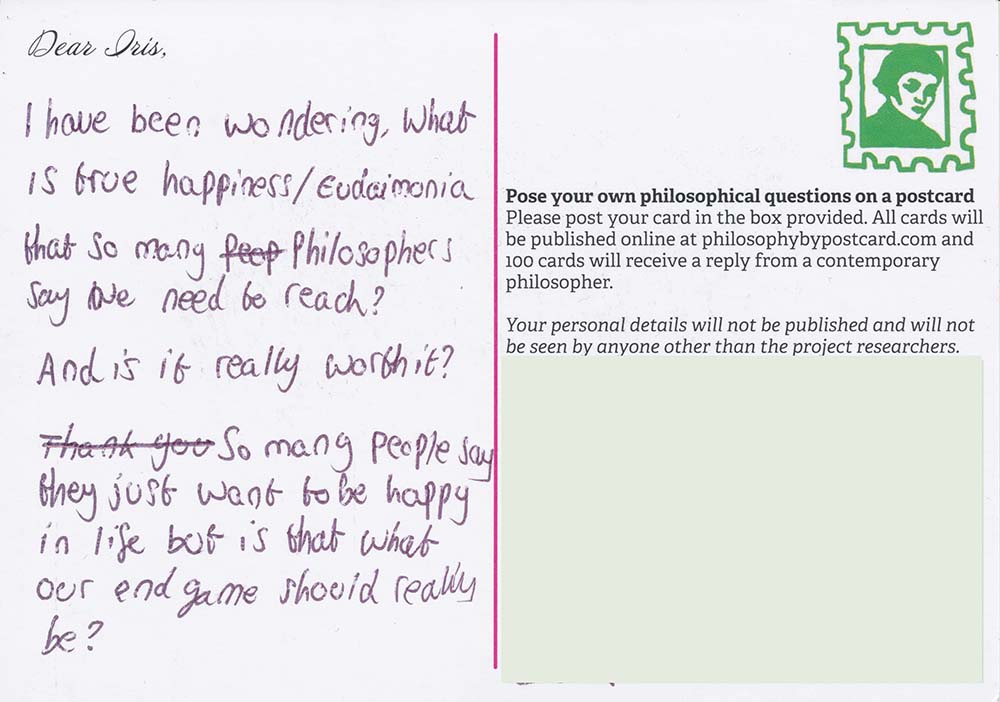I have been wondering, what is true happiness/eudaimonia that so many philosophers say we need to reach? And is it really worth it? So many people say they just want to be happy in life but is that what our end game should really be?
November 2019
Dear Bethan,
Those are interesting & important questions. Iris Murdoch, I think, believes there are things we can say - & things we need to learn – about what makes for a happy life in human beings like us. But her main notion is that of being good, rather than directly being happy: and that is a matter of seeing the world, our friends & others, with that kind of attention that brings accuracy & justice - & good action as a result. That kind of attention may actually make our selves almost transparent, as we focus on the world rather than ourselves. I expect she would take that as being a kind of happiness: the kind that clear thinking would persuade us was the only kind worth having in the end. But she is careful enough not to try to tell us what the end state exactly would look like: the path to perfection is an infinite one, & we can see only a limited way ahead of us at any time.
Many thanks!
Justin Broackes
Justin Broackes
Brown University, USA
Murdoch was a European as much as British philosopher, constantly searching for ways to renew the practice. She arrived in Cambridge to study Husserl, used George Eliot to rebut Ryle, turned to Sartre to reply to A. J. Ayer: then found — in Hegelian fashion — that the opposites shared an assumption, which she put in question with the help of Simone Weil. The moral life—life itself, I’ve found — and philosophy — are changed.



